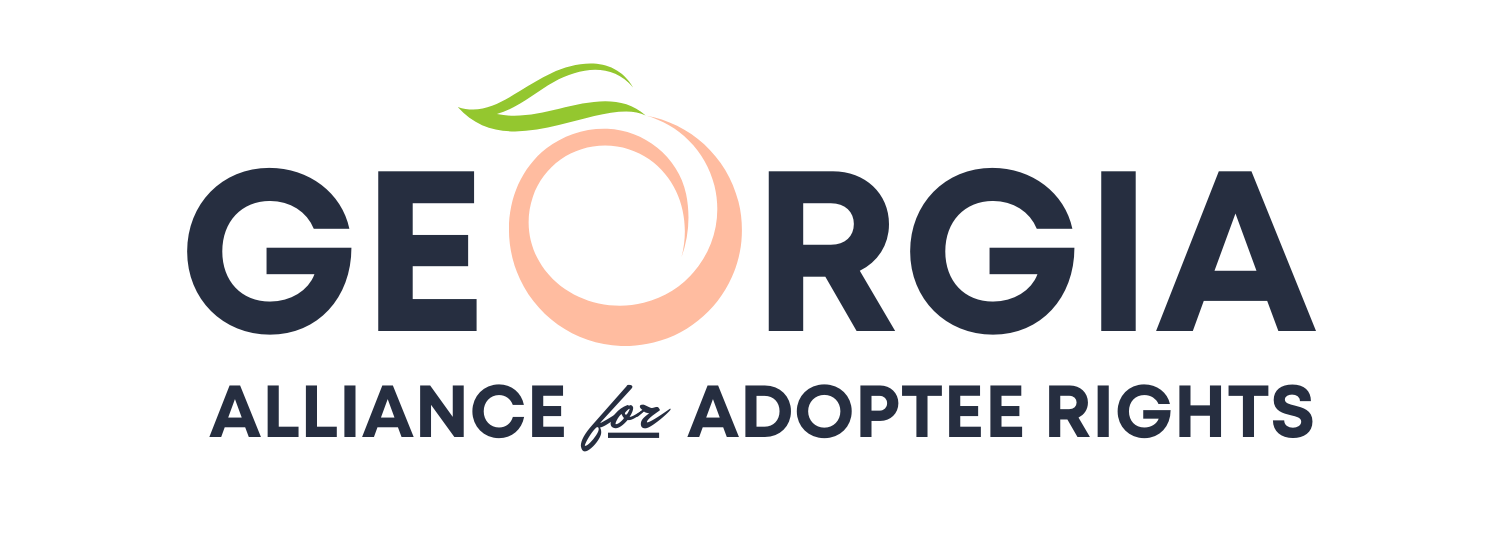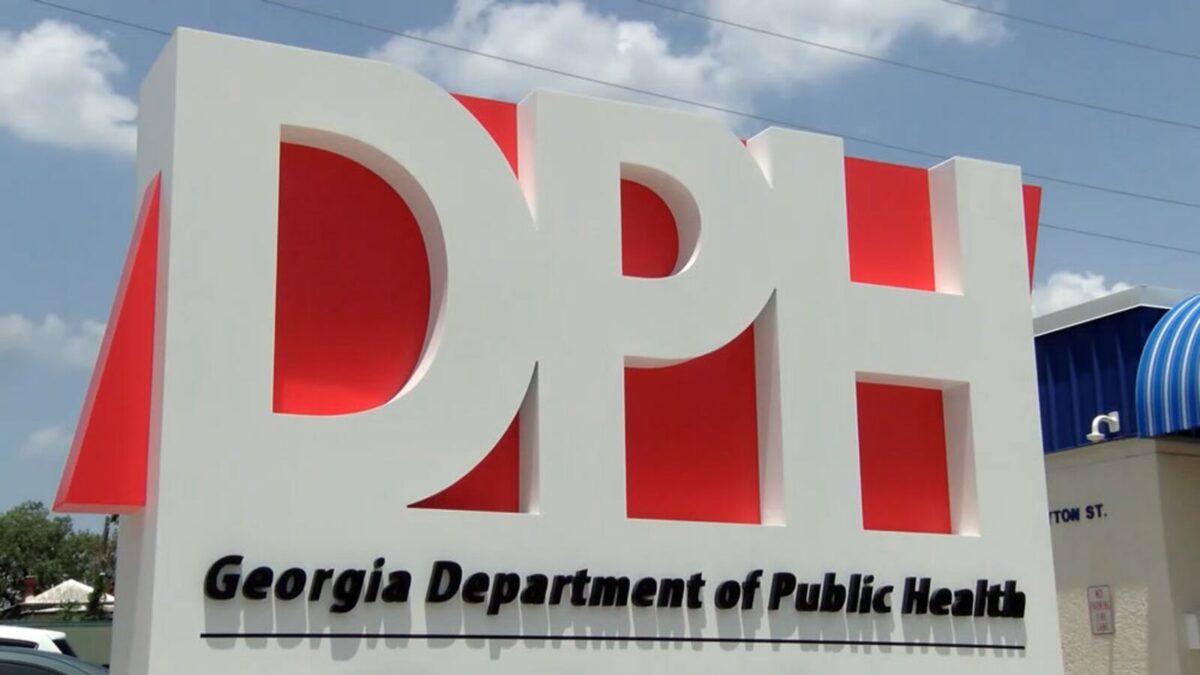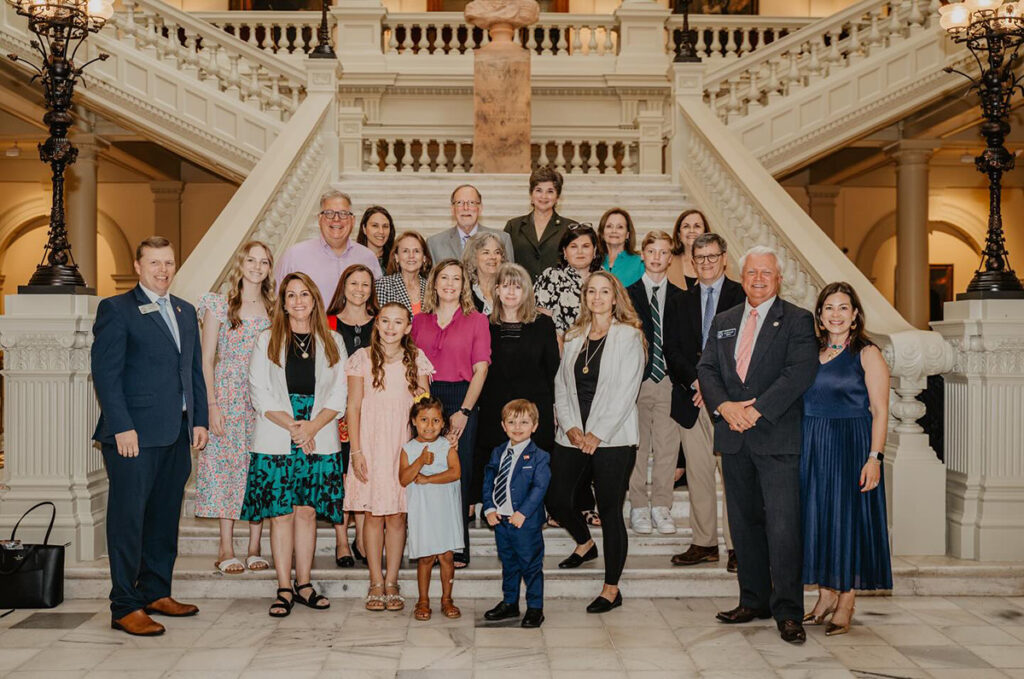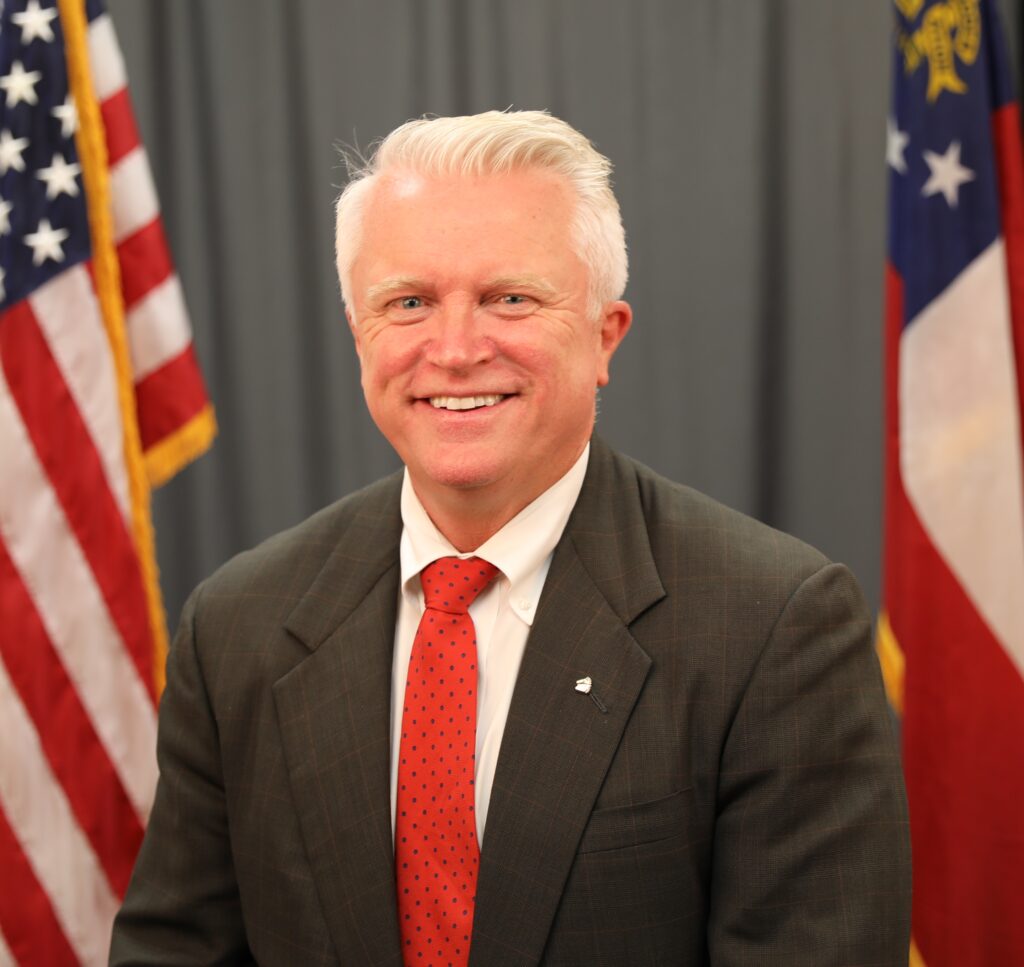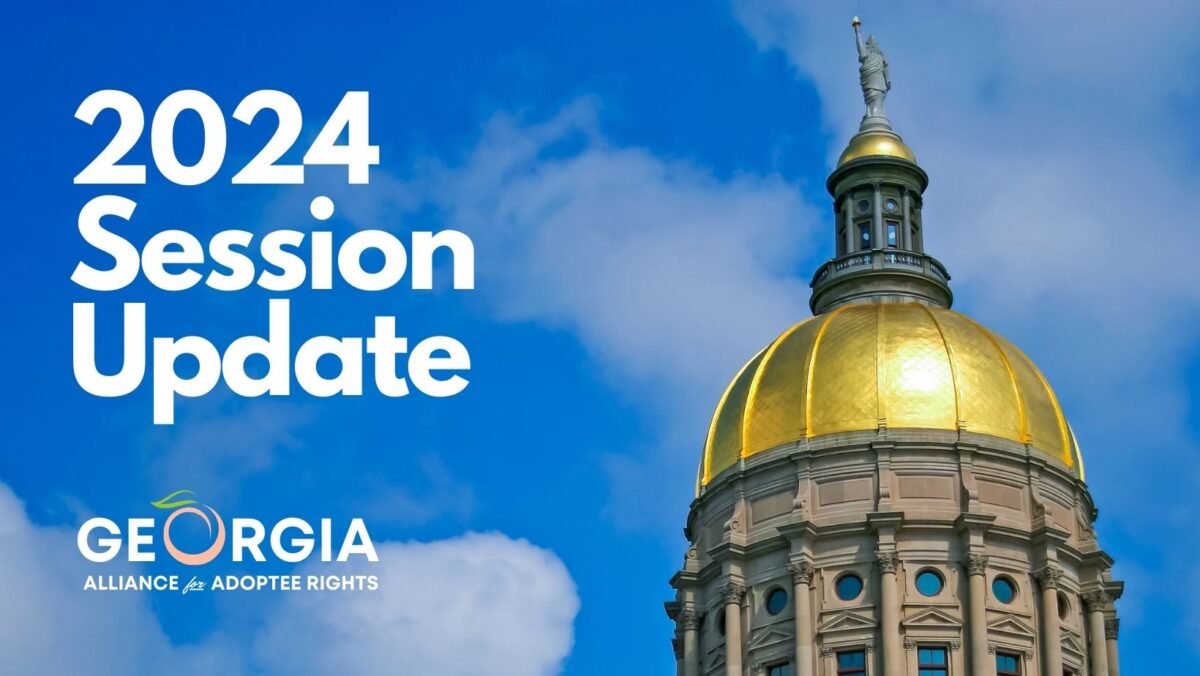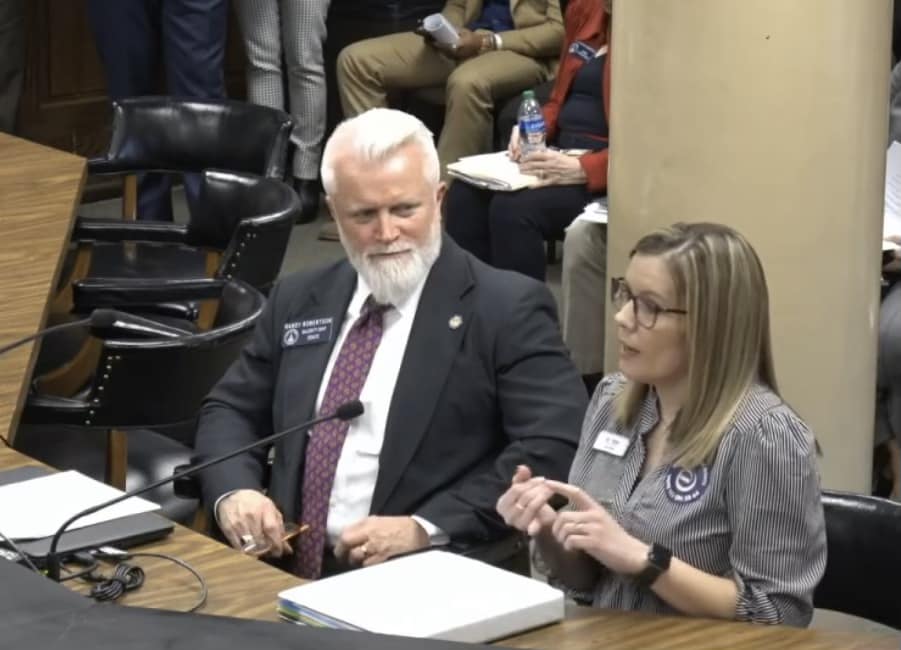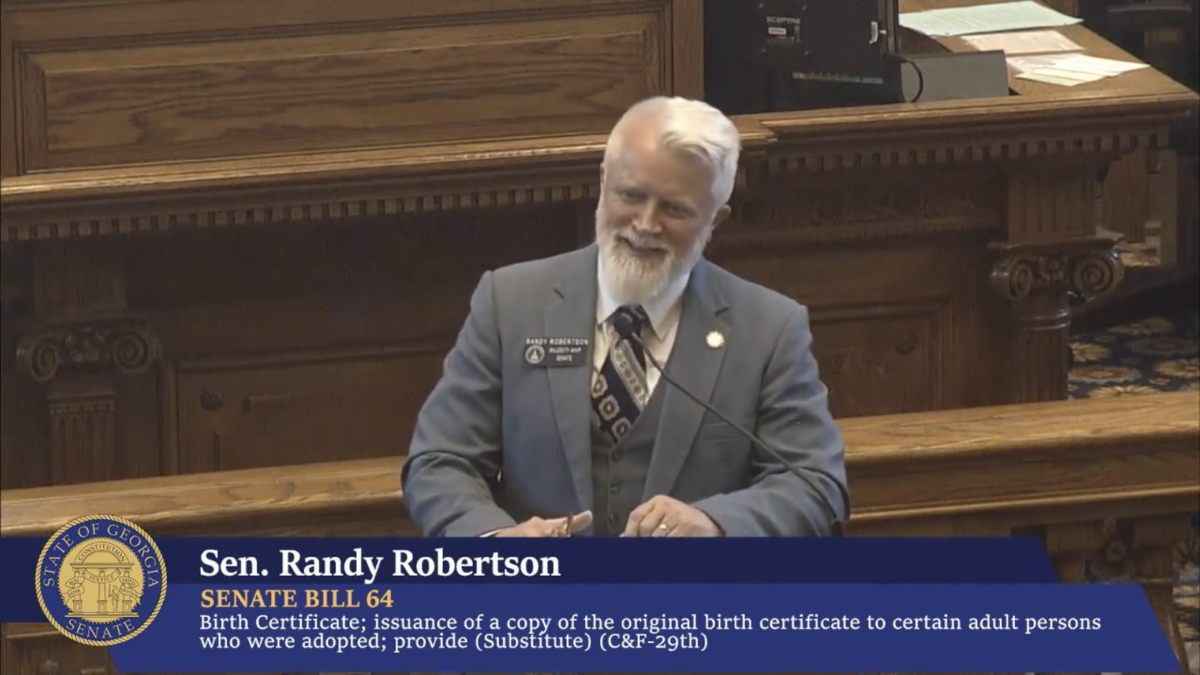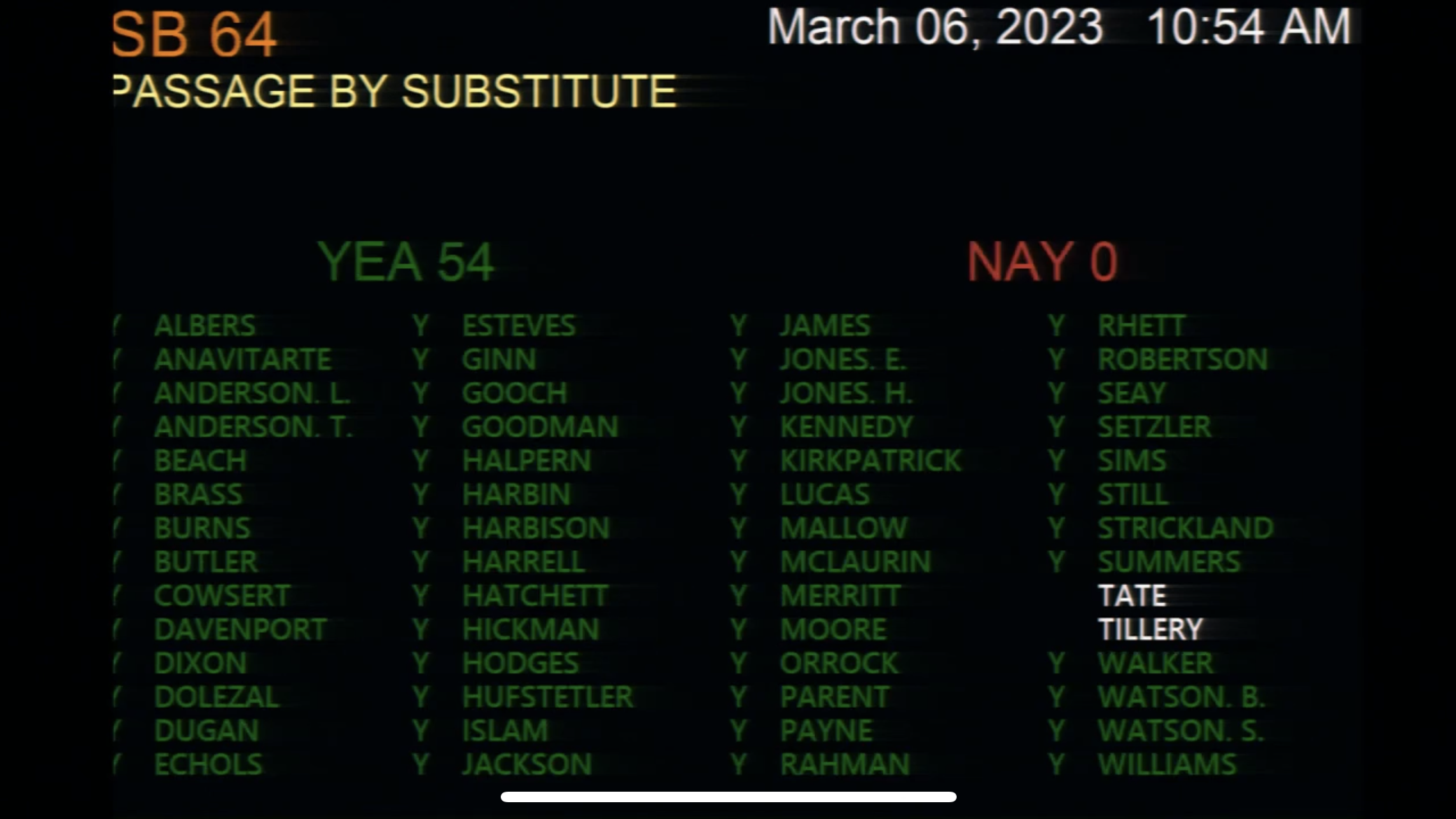How to Obtain a Pre-Adoption Birth Certificate in Georgia
NOTE: The following information is being provided by the Georgia Alliance for Adoptee Rights, based on Georgia law and the policies of the Georgia Department of Public Health (DPH), to assist applicants in obtaining a pre-adoption birth certificate. Though we are working closely with GA DPH and strive to provide accurate information, this is unofficial and can not be confirmed until the full implementation of SB100 “Andee’s Law” has been made and published by the state of Georgia.
Georgia law directs the State Registrar, in some cases, to establish a new birth certificate after an adoption takes place. The new birth certificate is substituted for the original birth certificate in the files, and the original birth certificate is placed in a “sealed file.” In the 2025 Legislative Session, the legislature amended the vital records laws to allow an adopted person who is 18 years of age or older, whose original birth certificate was placed in a “sealed file,” to obtain a non-certified copy of the original birth certificate from the Vital Records division of the Georgia Department of Public Health.
Who May Request a Copy?
- The person named on the birth certificate:
- who is at least 18 years old
- who was born in Georgia
- whom a new birth certificate was established after an adoption
- Any parent, sibling, or descendant of the adopted person, if the person named on the birth certificate is deceased.
What Will the Applicant Receive?
The applicant will receive a copy of the original birth certificate clearly marked that it is not a certified copy and it may not be used for legal purposes. The information on the birth certificate in the file is shown as it was provided by the birth parent(s) at the time of birth. These documents do not contain medical or other information about the birth parents.
How Should These Records Be Ordered?
- Pre-adoption birth certificate requests must be made to the State Office of Vital Records. They are not available through county offices.
- Applicants must use the form specified for requesting a pre-adoption birth certificate. If the Request for Search of Birth (Form 3918) is used, you will received the current legal record, not the original pre-adoption birth certificate. (The form for requesting a pre-adoption birth certificate has not yet been published by the Georgia Department of Public Health. We will update when it is.)
- Must submit required fees, valid acceptable photo identification document, and any other documents needed for proof of relationship or name changes.
Identification Requirements
There are instances in which specific documentation is required based on who is requesting the record.
- The person named on the certificate- If the person named on the certificate (i.e. the registrant) is the requestor, that person must provide valid photo identification at the time of the request.
- The parent(s) named on the birth record- Must provide valid picture identification.
- An adult child of the person named on the certificate- Must provide proof of relationship by providing a copy of his or her birth certificate, along with his or her valid government issued picture identification which includes signature.
- An adult sibling of the person named on the certificate– Must provide proof of relationship by providing a copy of his or her birth certificate listing one of the same parents, along with his or her valid government issued picture identification which includes signature.
Documentation of a Change of Name
If the name on your ID is different from your name at the time of your adoption, you must provide documentation that will prove you are the person listed on the birth record. (For applications by mail, attach an original certified copy of the requested documentation. Your original documents will be returned to you with the completed order). For example:
- If your ID shows a married name, provide a copy of your marriage certificate that shows your name as it appears on your legal (post-adoption) birth certificate and your name after marriage as it appears on your ID.
- If your ID reflects a legal change of name, provide a certified copy of your legal change of name decree that shows your name as it appears on your legal (post-adoption) birth certificate and your legal name as decreed by a court and as appears on your ID.
Fees
Georgia law requires pre-payment before a record or a service can be provided. Fees are non- refundable after a service has been provided. Records are sent first class mail. If the record is found, a copy of the certificate is included in the cost. If the record is not found, a not-on-file letter will be issued. No fees will be refunded.
Copy of Pre-Adoption Birth Certificate – $25.00
Additional copies – $5.00 (must be ordered in same transaction)
Acceptable Forms of Payment:
- Credit/Debit Cards (Walk-in service only)
- Cash (Walk-in service only)
- Certified Check
- Money Order
Application for Pre-Adoption Birth Certificate
The following options are available for requesting a vital record:
State Office of Vital Records Lobby Hours
9:00 AM – 4:00 PM, Monday-Friday, Except State Holidays
State Office of Vital Records
1680 Phoenix Boulevard, Suite 100
Atlanta, GA 30349
Response Time: 8-10 weeks. Applications can be made in person at the main office, but same-day service is not available for pre-adoption birth certificates.
Requests by Mail
Mail a completed copy of the appropriate request form, required supporting documents, and payment to:
State Office of Vital Records
1680 Phoenix Boulevard, Suite 100
Atlanta, GA 30349
Response Time: 8-10 weeks
*Personal Checks are not accepted. Please send payments in the form of a certified check or money order.
Online
Online ordering will be an option, but it is not yet available.
What if I was adopted in Georgia, but born elsewhere?
Georgia Department of Public Health can only provide records of vital events that occurred in Georgia. For events that took place outside of Georgia, please contact the vital records office in that state or territory for more information. The National Center for Health Statistics maintains contact information for vital records offices throughout the United States. Adoptee Rights Law Center has compiled information about birth certificate laws regarding adoptions in the United States to assist you in obtaining your original birth certificate.
